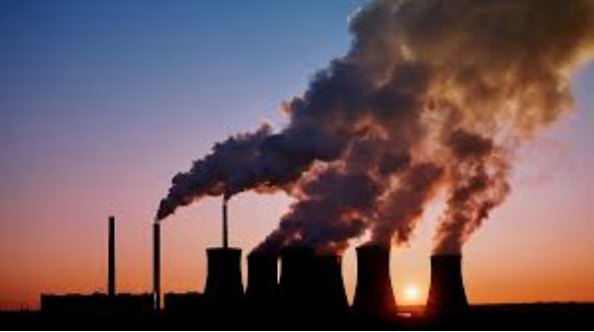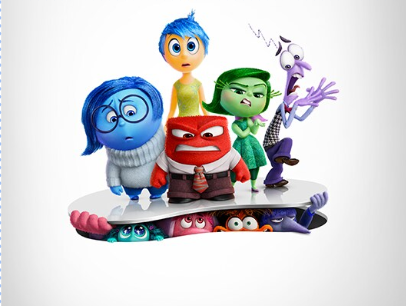Our Government: The Solution or Cause?

March 9, 2021
The United States government has been a beacon of prosperity throughout its history. But some global and national events prove otherwise. For example, one event is climate change. A study conducted in 2017 showed that humans emitted approximately 36 billion tonnes of carbon dioxide into the atmosphere. In that year, 15%-18% came from the United States, which is still a lot. Climate change is the change in our climate caused by greenhouse gases being emitted into the atmosphere. It is a danger to us as a species and can bring extinction to our planet. Every human individual has a fault. Our government has also contributed to the growth of climate change by making public transportation confusing, poor city planning, and talking about it with dread and gloom.
To begin with, the United States government has contributed to the growth of climate change by making public transportation hard for town residents. Making public commuting systems difficult for citizens to easily access makes the need for cars more likely. The more cars there are, the more CO2 is emitted into the atmosphere. According to a Vox article, “It’s impossible to get around except for in a car and political discourse often tends to favor building new roads and highways other than improving and expanding public transportation. The result of all that driving is a system that doesn’t serve the people who rely on public transit system and is also the biggest contributor to the country’s carbon footprint.” According to the Bureau of Transportation Statistics, nearly 80% of American commuters use their cars to get around from work to home, while only 5% of Americans use public transportation for these purposes. A study conducted by Federal Transit Administration (FTA) concluded that public commute systems can reduce greenhouse gas emissions by providing a low-emissions alternative to driving. This means that the more cars they are, the more greenhouse gases are being emitted into our atmosphere. This transportation problem is not a priority in politics because most Americans are happy with driving. To summarize, we have seen the confusion of public transportation, but that is not the only thing the government is to blame for. There is also poor city planning and the problem it brings.
Secondly, the United States government has added to the growth of climate change through poor city construction planning. Weak city planning has caused CO2 emissions to rise because of the lack of pedestrian space and more space to drive. “Modern cities are ruled by cars. Streets are designed for them; bikers, pedestrians, vendors, hangers-out, and all other forms of human life are pushed to the perimeter in narrow lanes or sidewalks this is such a fundamental reality of cities that were barely notice it anymore” (Vox). This is equally important because in 2014, Barcelona, Spain had serious pollution problems. It failed to meet Europe’s air quality targets. Studies showed the corrupt air quality causes 3,500 premature deaths every year. But a change came quickly when the city came up with a plan to reduce air pollution, noise, and traffic with supperilles, the Spanish word for superblocks. It reduces the number of emissions caused by cars and decreases traffic. It allows pedestrians to rule the streets. There is enough space for markets, outdoor games, and events thanks to the lack of cars and underground parking. It is a win for humanity because it reduces carbon dioxide and allows people to walk and do activities without the fear of being run over, some of which are not seen in America. To conclude, the lack of good city planning has caused CO2 emissions to rise.
Finally, another reason why the government has added to the expansion of climate change by talking about it with gloom. Our mind’s way of responding to fear and guilt makes us less engaged in the topic, explaining why climate change has become a serious threat to our world. Espen Stoknes, a Norwegian psychologist who talks about the psychology of economic choices for climate change, explains how our human psychology is a part of this climate crisis: “Stoknes… examined several hundred peer-reviewed social science studies and was able to isolate five main barriers that keep climate messages from engaging people, what he calls “the Five Ds”: Distance, Doom, Dissonance, Denial, and iDentity.” This is crucial to my claim because psychology has something to do with it too. That is why policymakers and politicians have a hard time with this issue. Americans continue to treat climate change as a distant problem. Distant in time, therefore, meaning the severe effects of climate change will happen in a decade or so. Developed countries such as the U.S argue that they have contributed to stopping. They also state it is the fault of the large developing countries, such as China. On the other hand, developing countries argue that the emissions from the west are lifestyle emissions and the developed countries emit survival emotions. The constant fear makes humans even think climate change is a hoax, which means more and more emissions will occur if there is no change. In conclusion, We have seen three ways how our government is also to blame. There is still more that hasn’t been discussed, but the American government can also bring a solution.
In the end, The American government has made very questionable decisions, but questionable decisions come with intelligent and smart solutions. For example, the Green New Deal and the Nationwide solar energy movement are the results of our government. The American government may have contributed to the extension of climate change, but has also been a solution to it. Climate change is not only affecting our nation, but it is also affecting the whole world. If we do not change now the effects of climate change can be unchanged. All humans may have been the cause, but we can be the solution. If we put our brains together we can make our world a better place so we and future generations can live a better life in a better world.
Works Cited
Andy Murdock, University of California. “Why Humans Are so Bad at Thinking about Climate Change.” Vox, Vox, 19 Apr. 2017, www.vox.com/videos/2017/4/19/15346442/humans-climate-change-psychology.
Bult, Laura. “Why American Public Transit Is so Bad.” Vox, Vox, 23 Oct. 2020, www.vox.com/videos/21529609/usa-public-transit-trains-buses-cars.
Roberts, David. “A Fascinating New Scheme to Create Walkable Public Spaces in Barcelona.” Vox, Vox, 4 Aug. 2016, www.vox.com/2016/8/4/12342806/barcelona-superblocks.














